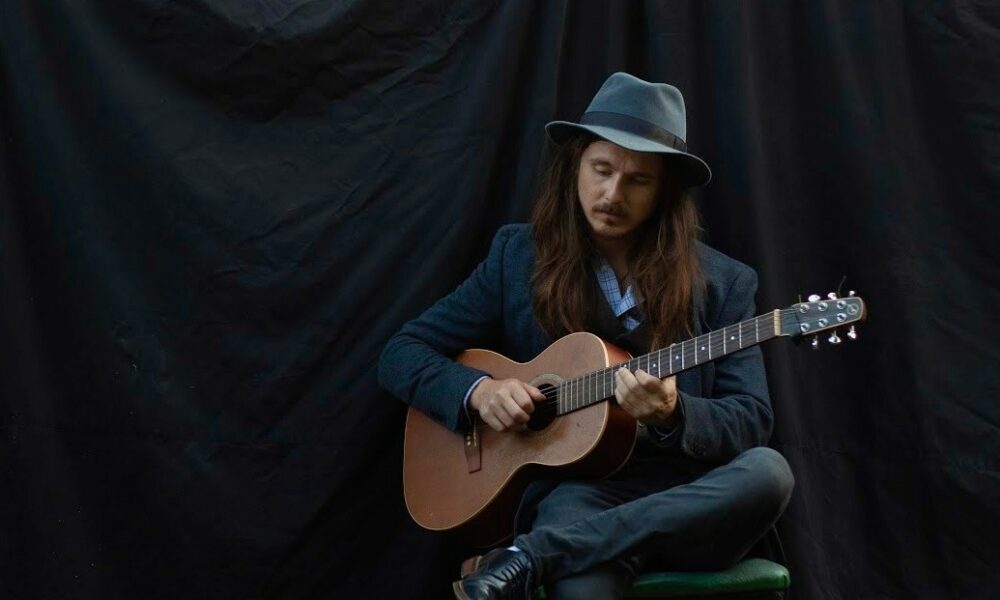

Today we’d like to introduce you to John Dennis.
Hi John, thanks for joining us today. We’d love for you to start by introducing yourself.
I grew up in a farm town in southern Illinois (Freeburg)–just outside St. Louis. I didn’t come from a musical family (though my parents adored classic country), and my first great love was baseball. I dreamed of one day playing professionally, but was, frankly, never very good at it.
Upon failing to make my grade school’s baseball team in eighth grade, I was heartbroken and longing for something. That night, I went to a Borders bookstore with my parents and stumbled upon a Beatles compilation CD, and my parents agreed to buy it for me. I’d heard of the Beatles and was more curious than anything. When we listened on the car ride home, and I heard my parents singing along to the tracks, something awoke in me.
Within a week, I got my first guitar (an electric one) and fell in love. I’d played alto saxophone in my grade school band just to be around friends, but it was the guitar that set the fire off in me. It was all I thought about, and I devoured any music I came across–which, at that time, was largely classic rock of the 1960s and 1970s. Being in a small town, I formed a band with what were the few friends who played rock instruments, and we began playing cover shows almost immediately in bars and coffee shops in the area.
I was the lead singer as I was the only one in the group willing to try it at that time (eventually we had multiple singers). We played throughout high school, and I would credit those gigs with being foundational to what would eventually be a music career–having to entertain a bar with four hours of music, navigate technical difficulties, and inadvertently learn the craft of songwriting through performing great songs of the past. Our band was named The Still Montgomeries, and we did eventually release an EP in 2012–which was my first time in a recording studio.
It’s worth noting, that even before finding the guitar, I had always loved and was competent in poetry, so it should be no surprise that the aspect of music that I most gravitated towards was songwriting. I never had dreams of being a glamorous lead guitarist, but a future in which I was writing and performing my music has always felt like my true calling. As a result, I began gravitating more towards Folk/Americana–idolizing legends like Bob Dylan, Paul Simon, Tom Petty, John Prine, Kristofferson, etc. (though I still love all kinds of music, especially anything with a strong lyrical focus).
Also during this period, I began dating my high school sweetheart Adrienne–who was, somehow, an even bigger Beatles fan than I was. We dated all through high school, and it seemed apparent even then that this would be a lifelong relationship. She was a musician herself, and, in retrospect, our relationship centered around that sort of Springsteenian (?) narrative of two dreamers breaking free of our small, working-class town and taking life by storm.
Moving on, my parents have always been supportive of my music, and we took a couple of family vacations to Nashville when I was in high school–and on one of them, we toured Belmont University. It was clear to me that my musical path meant moving to Nashville (as both New York City and LA seemed too far from home), and I began studying guitar at Belmont in 2010. It was my first time being away from home, and I struggled as I was suddenly surrounded by kids who were exceptionally gifted at their instruments and who naturally seemed to possess a lot more self-confidence than I ever did. Still, my dreams and Adrienne helped to keep me grounded in this strange new world. Adrienne intended to transfer to Belmont the following year as an Art Major (she was a year older than me and was working on an Associate back home).
Unfortunately, on the first day of my first Fall break (October 15, 2010), Adrienne was killed in a car accident in Columbia, IL while I was still just a few hours away from arriving back. This, naturally, derailed my life, and I went from being an 18-year-old with a promising future ahead (I’d been voted student council president, most likely to succeed, etc), to a tortured and self-destructive artist beset with questions no 18-year-old should have to ask. Still, I continued studying music at Belmont and graduated in 2014.
However, my grief and confusion began catching up to me by the end of my tenure there. I’d signed a record deal with Rainfeather Records my senior year and was being lauded by my professors for the songs I was writing, but as academic burnout began to take away music’s calming effect for me, it was replaced by alcohol. Certainly, drinking is a somewhat standard part of the collegiate experience, for me it almost immediately became a vehicle for escapism and deliberate self-destruction. To be honest, I’d had yet to accept that life could ever go on without Adrienne, and alcohol provided me with a means of committing suicide in a slow, methodical manner. As cliche and ridiculous as it might sound, I believed that it was in some way honoring Adrienne to destroy myself–in the same way so many of my heroes (both in poetry and music) had done in the face of personal tragedy.
My drinking only intensified throughout 2014 and was so extreme that, even now, I only remember a few weeks of that entire year. The climax of this trajectory came in January of 2015 when I went home to put on a Beatles/Tom Petty tribute night for Adrienne’s friends and family. This was something we’d done every January since her passing, but each year the weight only seemed to get greater for me. I spent this particular year drinking all day leading up to it, and by the time the music was to start I was so inebriated that I had to be pulled from the stage in front of everyone. This confirmed that my destruction was in no way honoring Adrienne.
In response, I checked into Cumberland Heights in Nashville for my first 30-day rehab program for alcoholism. As is often the case, I left Cumberland believing I could now control my drinking and within 6 months of leaving, I ended up back in treatment in June of 2015 where it was estimated that I was within a week of drinking myself to death at age 23.
Following this stent, I came to terms with my alcoholism and realized that to go back to drinking would mean death. I’d followed that road to the end and instead decided to try living life differently–moving into a halfway house and working a program of recovery. Through that, I met some of my best friends to this day and began processing some of the grief surrounding Adrienne’s death.
I had released one album through Rainfeather Records, Eternity’s Tree, in 2014–while I was still drinking–and following my second stent at Cumberland, I wasn’t sure whether I’d go back to making music. However, music, again, had returned to a therapeutic activity that I didn’t have to hang my future on, so I just let the songs come to me without worrying as much about whether they’d ever be released. Ultimately, they were released in 2017 as my sophomore album, Second Wind, which received critical acclaim from American Songwriter and a variety of other publications I’d always dreamed of being featured in.
Today, I have remained sober from alcohol for eight years, released a third album Mortal Flames at the end of 2019, and have been in a fulfilling and sustaining relationship with my girlfriend Allanah “Al” (who I met at the Cafe Coco Open mic in 2017). I continue to follow my dream of making a living out of my music and have established myself in the community of great writers in East Nashville.
All the while, I feel far more grounded in both my life and my music, and I consider a second life’s mission to help to encourage artists around me by being transparent about my struggles and celebrating the sheer courageous vulnerability it takes to get on stage and lay bare your soul. One outlet for doing this has been in running sound for The Bowery Vault Open Mic in Easy Nashville every Thursday night where I get to meet and be in community with so many artists at varying stages in their Nashville musical journey.
I certainly don’t have it all figured out, and I still feel a long way from where I eventually hope to be, but I am undeniably so much closer than I once was, and I have continued to trust the process and recognize that, regardless of where it ends up, music has been a true companion to me and does have the power to change lives for the better–it certainly has for me.
We all face challenges, but looking back, would you describe it as a relatively smooth road?
I have dealt with the death of my high school sweetheart, a near-fatal bout with alcoholism, and a lifetime struggle with self-confidence that has often felt like an obstacle when it comes to actually marketing myself and excelling in the business side of music.
What I would add is that, for a very long time, I thought that to be a great artist one had to endure extreme tragedy–that the only great songs were sad. I no longer believe that and instead submit to the mantra found in Stephen King’s On Writing memoir: “Life is not a support system for life. It’s the other way around.” To me, this has always reminded me that my music is, more than anything, a blessing that allows me to make better sense of the varying peaks and valleys of my life.
Yes, there have been extraordinary struggles, but there have also been great joys. Nowadays, I do my best to live fully in the present moment and always have an available comfort in music, whereas it used to be that I lived wholly in my past, ruminating in my pain, thinking that perpetuating my misery was somehow service to my art (and to Adrienne)–and so my refusal to process and accept the struggles of my life nearly destroyed me (and my art along with it).
Appreciate you sharing that. What else should we know about what you do?
I have worked many day jobs as a musician in Nashville, but my pride and calling remain in my music. I consider myself primarily a songwriter of complex, lyrically driven Americana music. I believe I’m set apart by my willingness to be wholly transparent about my struggles and the messages of hope in recovery I’ve gleaned from many years spent in life’s darkest valleys.
I’m proud to feel included, known, and supported in East Nashville, and I’m also proud to feel like I have succeeded in encouraging other writers who might be new to town to be more vulnerable and outright with their shame–I think it is extremely important as music has the power to transcend one’s own experiences and emotionally connect with others who might be feeling hopeless in their struggles.
So maybe we end by discussing what matters most to you and why?
What matters most to me is living a life that uplifts those around me and gives hope to others that life can get better.
If there’s anything my life has proven to me, it’s that everyone is dealing with their struggles and shame, and all of them are valid in what they’re feeling–as pain is relative, not a competition. I do my very best to honor that truth in every interaction I have–though I’m obviously, like everyone, a work in progress.
Further, I long to “make it” in music and so recognize that some songs are “better” than others (though art is subjective) and strive to be the best writer I can be, but in a more basic sense, I believe the world is a better place with every piece of honest art that gets released, so it is hugely important to me that I don’t discourage anyone else from making music and following their dream–whether I like it or think of it as marketable or not.
Contact Info:
- Website: www.johndennismusic.com
- Instagram: https://www.instagram.com/johndennismusic/
- Facebook: https://www.facebook.com/JohnSRDennis/
- Youtube: https://www.youtube.com/@johndennismusic
- SoundCloud: https://soundcloud.com/johndennismusic
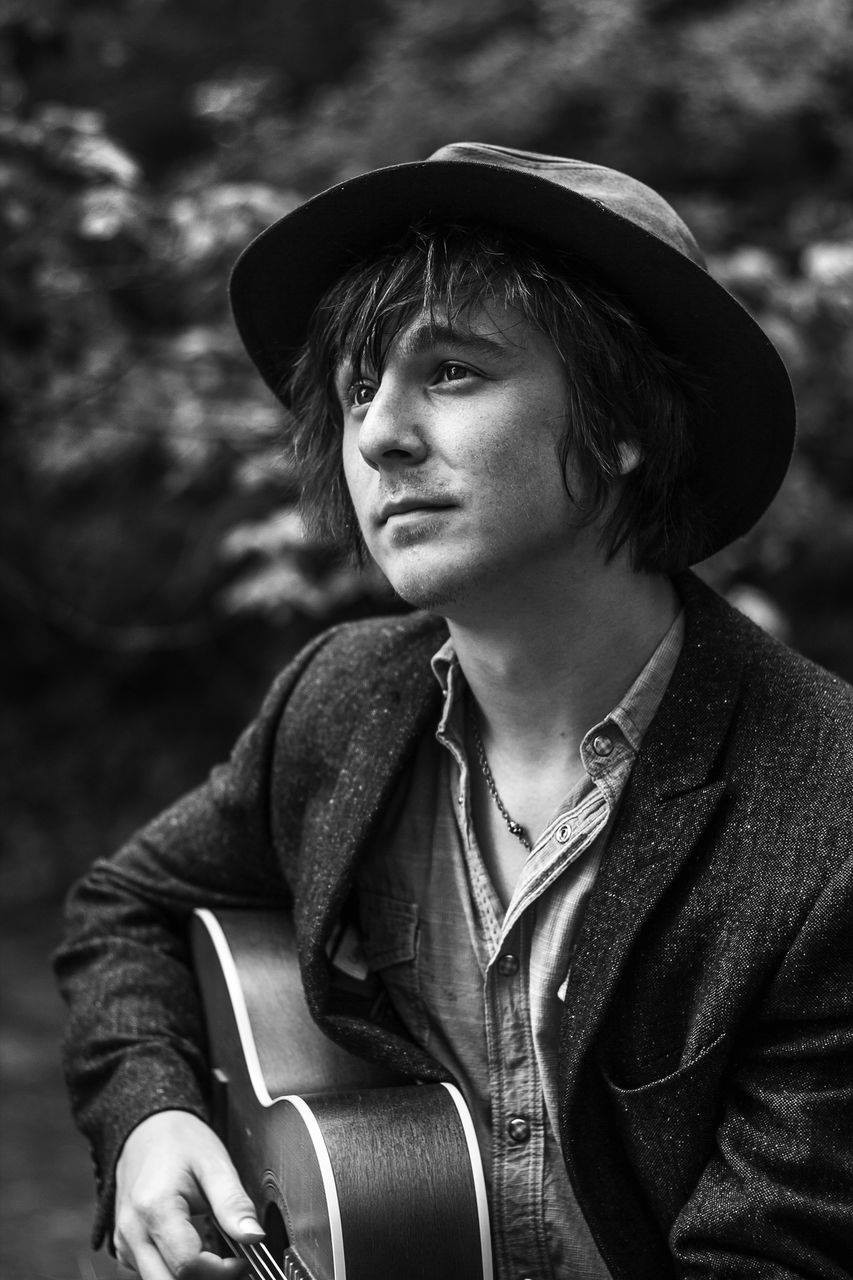
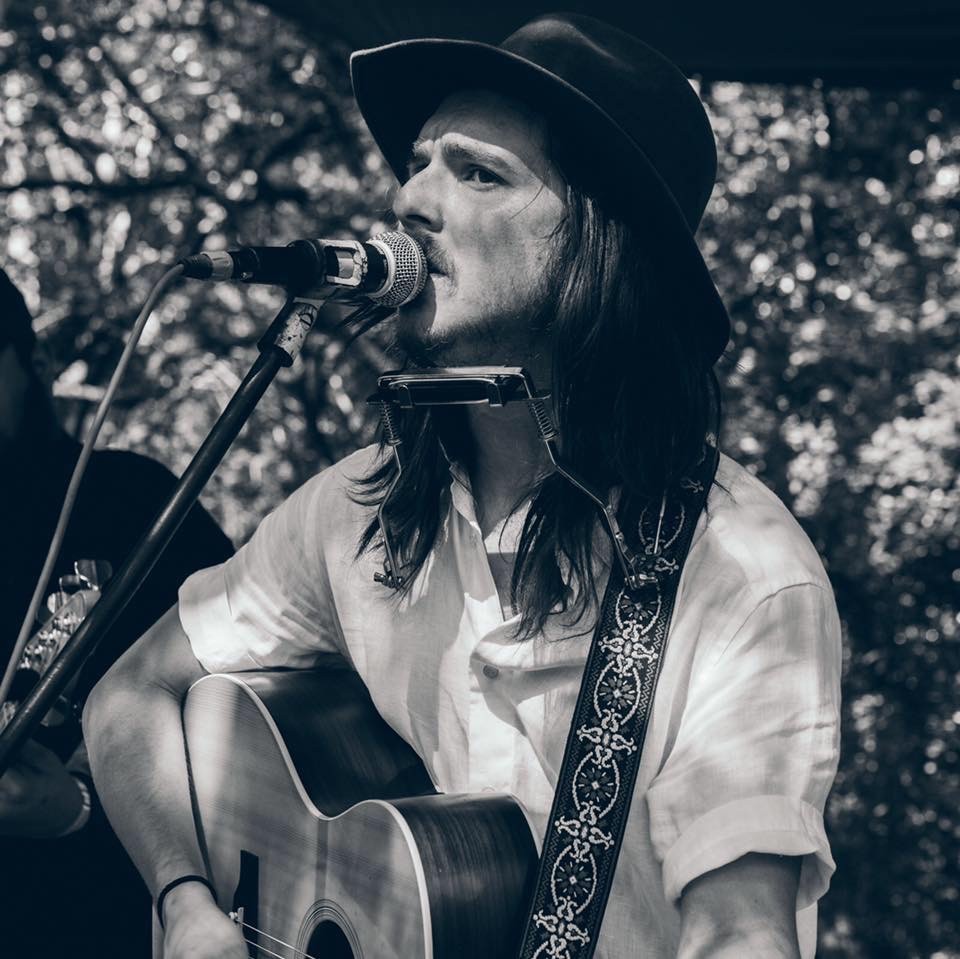
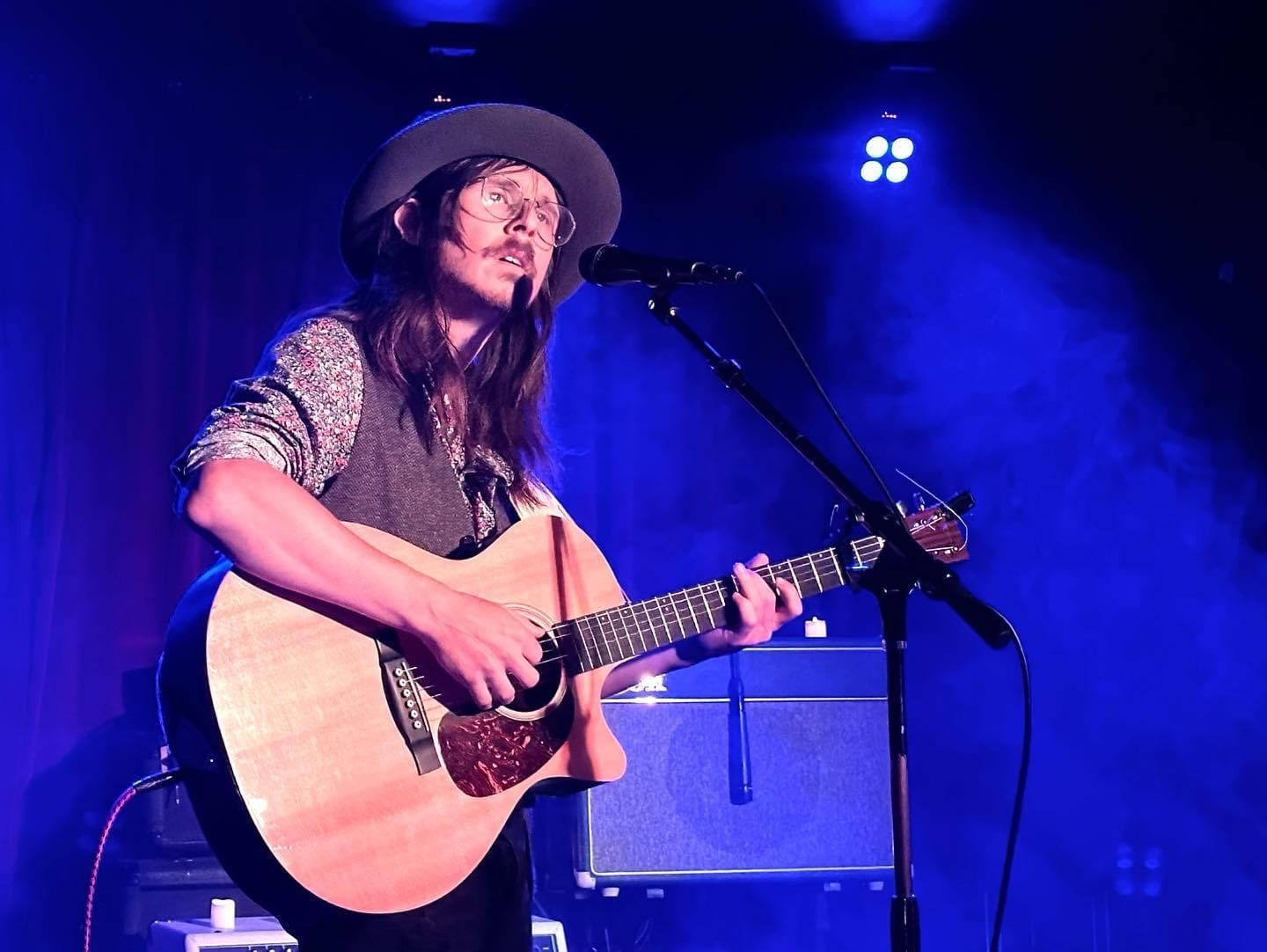
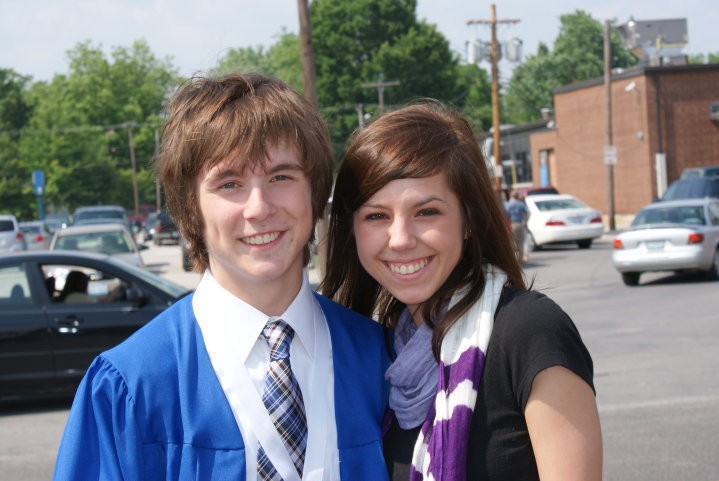
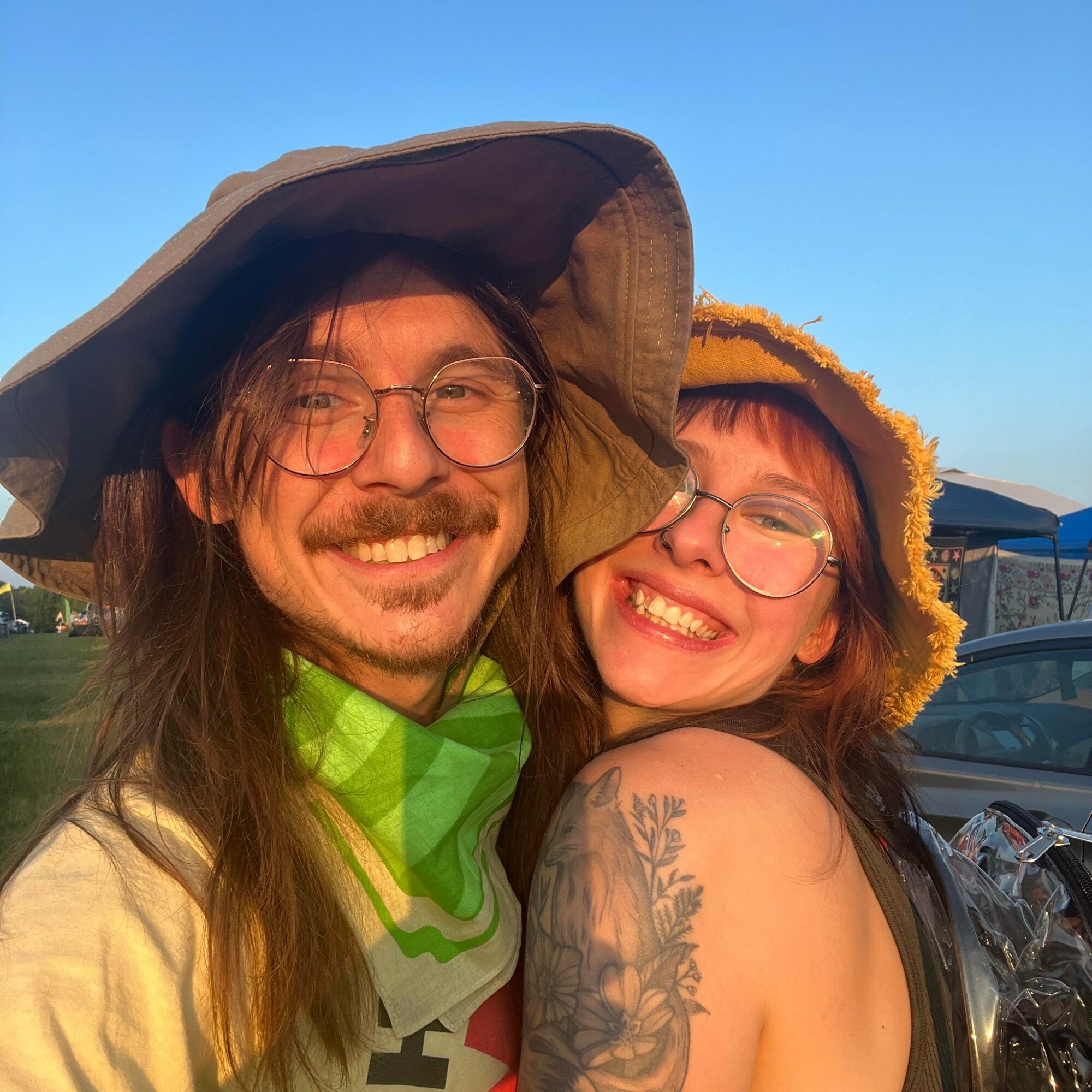
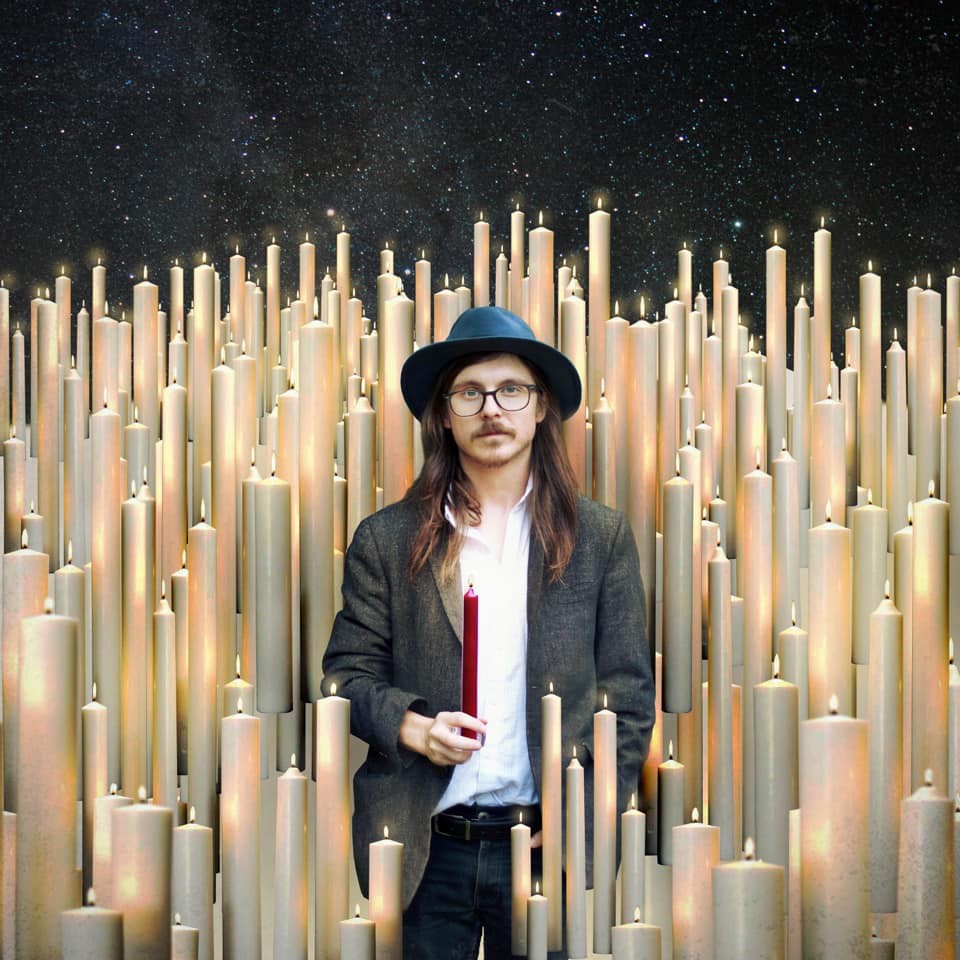
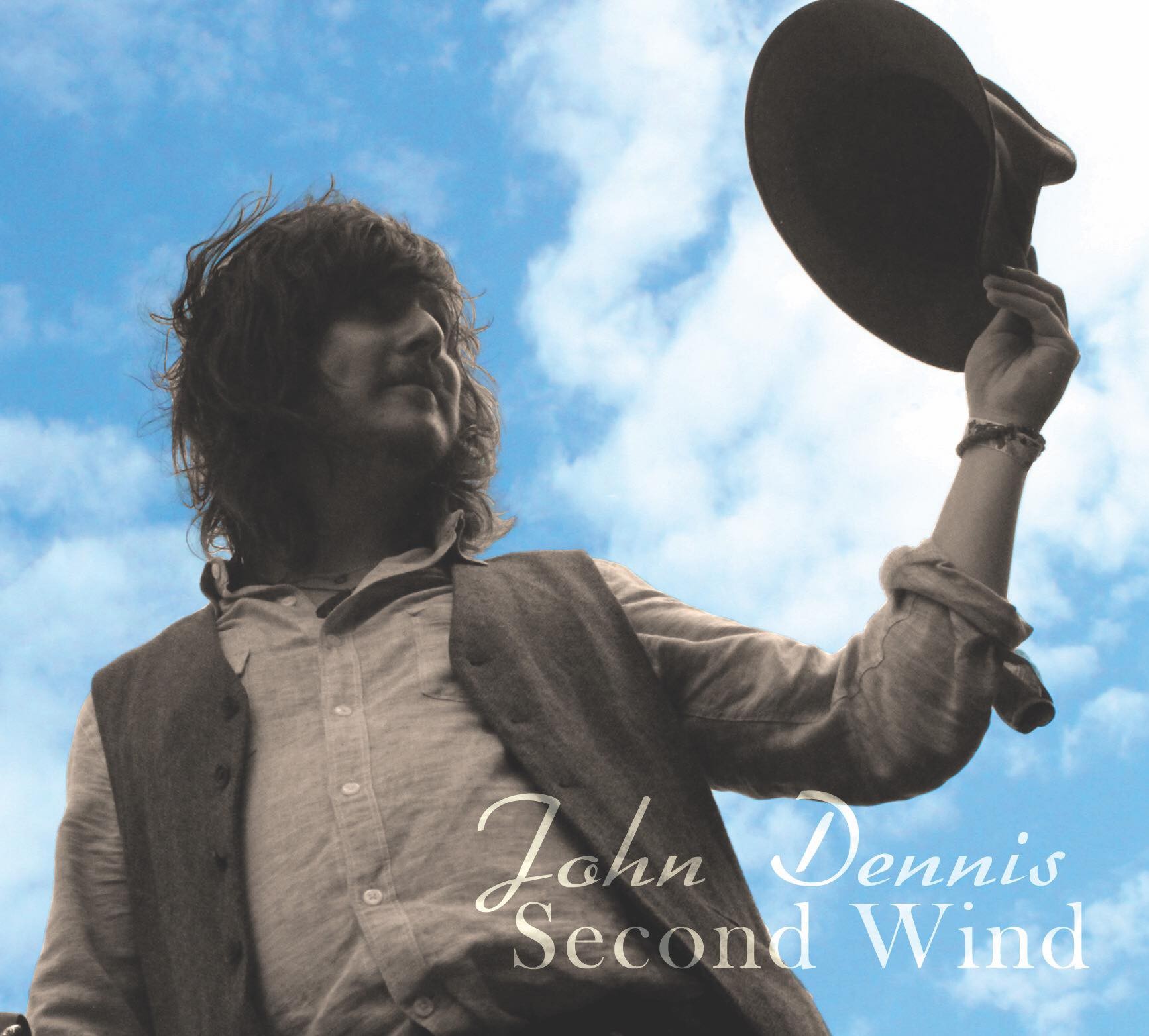
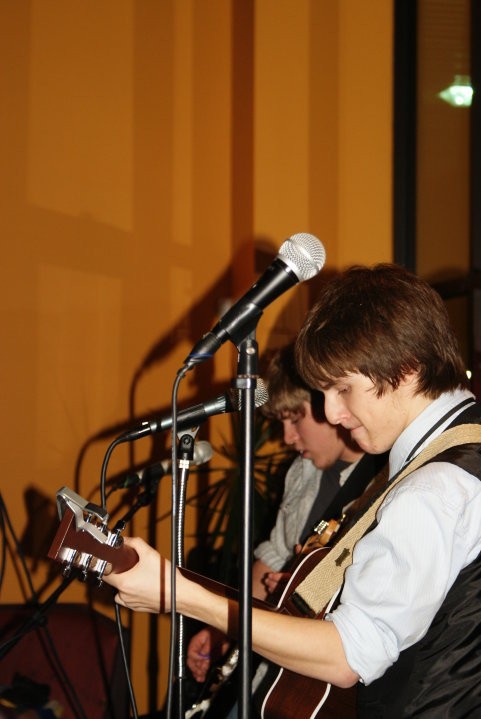 Image Credits
Image Credits
Kristin Indorato, Abbigail Adkins, Shekinah Grace, Yniguez Mortal Flames, and Kelsey Ann Thomas












